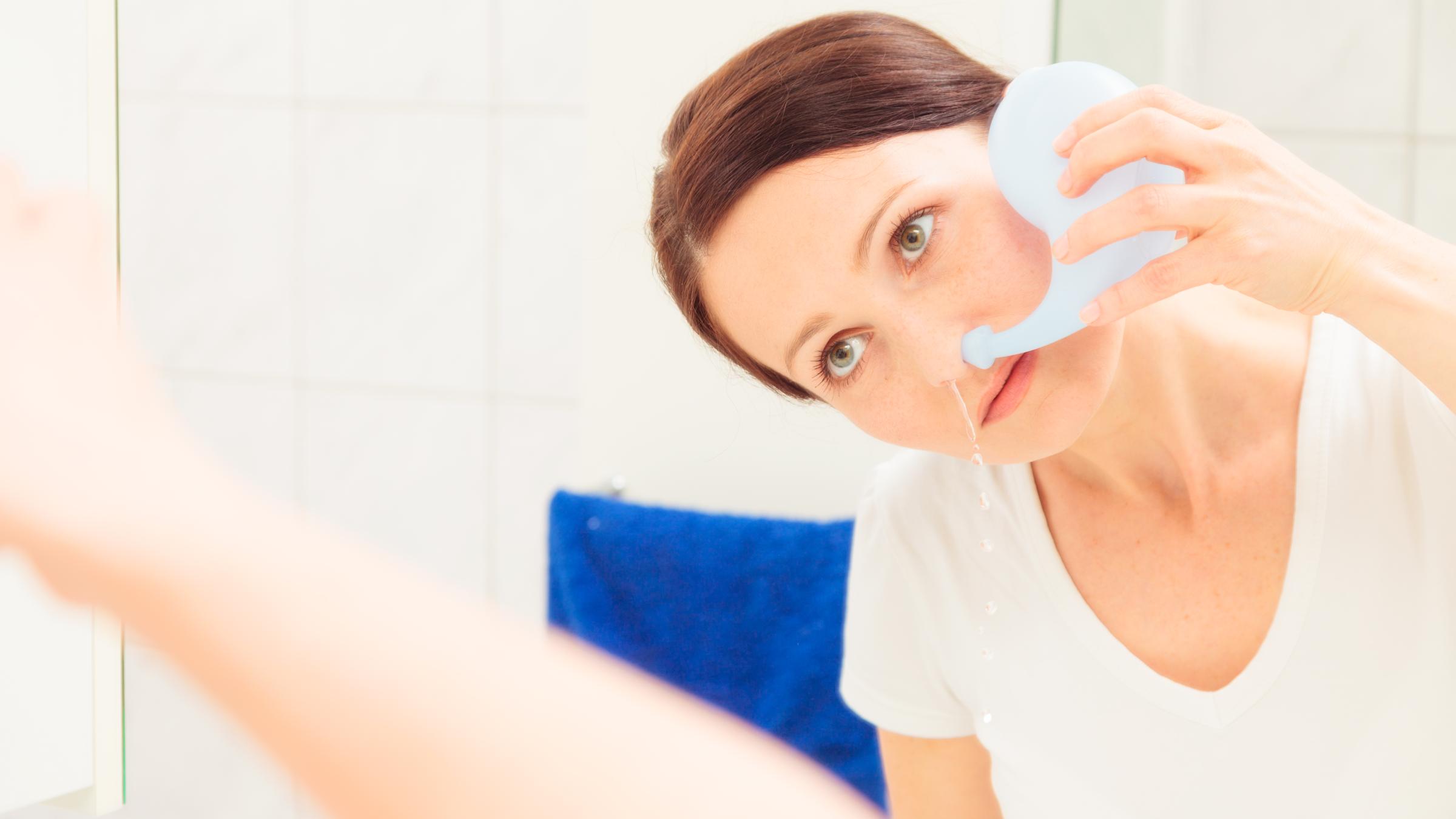
Many people swear by their neti pots or sinus rinse bottles, crediting them with relieving headaches, snoring, sinus pressure and other issues associated with nasal congestion or thick mucus.
However, while nasal irrigation is a low-risk treatment, it’s important to know that it can be counterproductive sometimes. The practice isn’t a cure-all for every person or every nasal symptom.
What is nasal irrigation?
Different devices can be used for nasal irrigation — squeeze bottles, bulb syringes or a teapot-like instrument called a neti pot — but they all perform the same basic function. A mixture of water and salt is poured or sprayed into one nostril and flows out the other nostril, then is repeated from the opposite side. Typically, you’ll lean over a sink, tilting your head sideways and forward so that liquid doesn’t reach your throat.
Most devices are sold with pre-mixed packets that you combine with sterilized water, but your doctor can help you find a safe recipe if you’d like to make your own saline concoction from scratch.
When and why to use nasal irrigation
When your nose has thick mucus drainage or mucus obstructions
When you’re experiencing congestion from obstructed nasal passages or thick mucus, a neti pot or other sinus rinse method can help manage those symptoms, safely clearing the way for easier breathing.
After nasal surgery
In my practice, I often prescribe irrigation after nasal surgery to help clear the nose of blood clots and to aid healing. In some special situations, irrigation systems are a vehicle for getting other treatments, such as antibiotics or steroids, through the nose. Of course, these special applications should only be used when directed by a physician.
When not to use nasal irrigation
If your nose is too dry
Irrigating your nose with a saline solution likely will cause more dryness, not less.
If you notice your nose getting too dry, take a break from irrigating your nasal passages and consider giving your nose some TLC. I often recommend applying a thin layer of coconut oil to the inside edges of the nose — it acts as a natural, protective coating to help lock in moisture. Your primary care doctor or ENT specialist can recommend more options that may work best for you.
If you notice problems with your Eustachian tubes
Some people begin to experience discomfort in their ears or Eustachian tubes when using neti pots or other sinus rinses. They’ll notice pressure changes in their ears and/or feel like they need to pop their ears often.
If this happens, consider discontinuing your neti pot use or re-evaluating your methods — make sure you’re tipping your head forward in the way your device’s instructions suggest.
If it’s not helping your symptoms
This may seem obvious, but it’s worth mentioning: If you’re experiencing uncomfortable nasal symptoms and your neti pot doesn’t affect them or makes them worse, discontinue its use. See your primary care physician or an ENT specialist to narrow down the cause of your problem.
If you’re unable to keep the device free from contamination
This aspect of nasal irrigation is often overlooked. Neti pots, squirt bottles, etc. should be cleaned regularly according to their instructions. They’re not something that should sit on your bathroom counter for a month without being washed.
The water used for this purpose should be distilled, sterile or boiled and then allowed to cool. Water that hasn’t been sterilized can carry contaminants, including brain-eating amoebas that, in rare instances, have led to neti pot users’ deaths.
You should also consider replacing your irrigation device every so often, just as you would a toothbrush.
The bottom line
Like many at-home medical treatments, the key is moderation. The nose isn’t designed to have water flushed through it regularly, so if you find yourself needing to use a nasal irrigation system more than once a day or more often than you think is reasonable, consider seeing an ENT physician to learn more about the cause of your nasal symptoms.

Stop living with sinus infections
Ohio State's ENT team provides comprehensive care backed by one of the nation's leading academic health centers.
Expert care starts here




